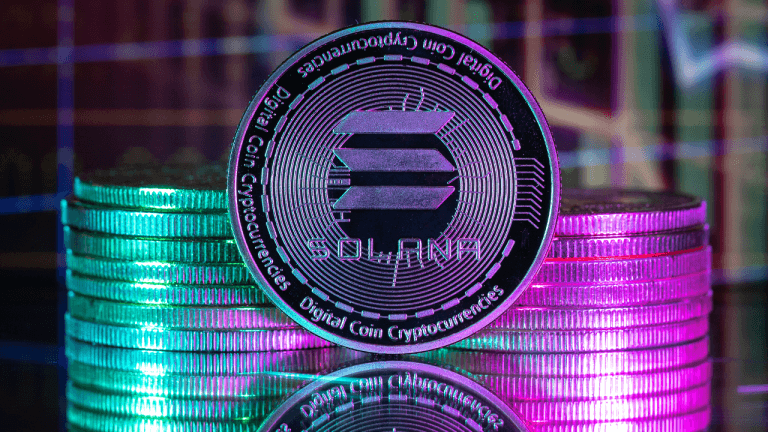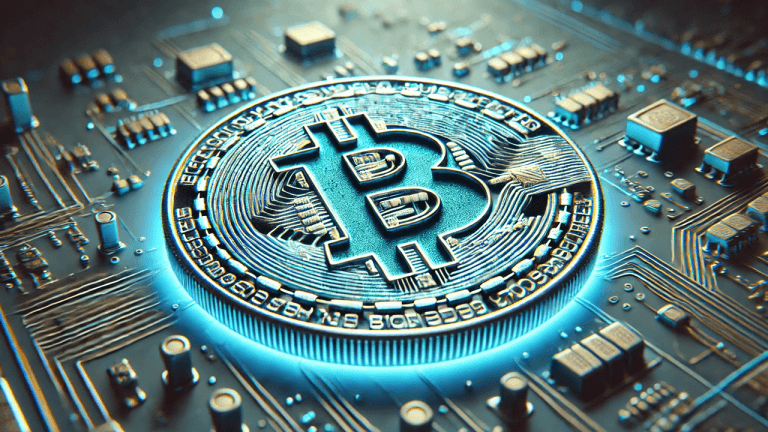
By now, youve probably heard of Bitcoin. You may have heard that it has made some people rich. You may also have heard that its a new form of digital money and that its the future of commerce, or that its a criminal enterprise and that its bad for the planet.
The messaging is confused and confusing, which is partly because no one person controls it just like Bitcoin, which belongs to… well, all of us.
In this short essay, I want to help the Bitcoin-curious understand a few facts about the worlds top cryptocurrency. Its not technical, and its not hard to follow. Its not comprehensive, either, which is why this article is peppered with links so that you can find out more.
Im not advocating for Bitcoin as an investment, although I do think its worth owning a little. Im just trying to set the record straight on a few misconceptions and help newcomers to the Bitcoin community get up to speed quickly with a few key concepts. Hopefully, if youre reading this with an open mind, youll realize quickly that theres much more to Bitcoin than its price.
There are babies in the bathwater
Lets start by getting a few things out of the way: Cryptocurrency is a dangerous, often ugly place. There are countless scams, hacks and exploits. It appeals to degenerate gamblers, criminals and fools. Motivated reasoning and sunk-cost fallacy prop up bad ideas long after they should have collapsed. Con artists thrive in the open, and ordinary people often lose their money. The crypto space is 95% bullshit by volume, so its understandable that some people conclude it must be entirely bullshit.
But mostly bullshit is not the same thing as entirely bullshit. Dismissing crypto because it is full of scams is like dismissing Twitter because the average tweet is terrible. The problem is not that Twitter (or crypto) has nothing to offer; the problem is that it takes time and energy to learn how to dig through the bullshit and find the genuinely interesting ideas.
Rejecting cryptocurrency entirely is much easier and seems to offer a lot of moral clarity but it leaves behind a nagging question: If cryptocurrency is so obviously awful, why doesnt it just die?

Bitcoin is not going away
An interesting thing about Bitcoin is that almost no one believes in it right away. Bitcoins design is so ugly and counterintuitive that almost everyone rejects it as impossible at first. There were around three years between when I first heard about Bitcoin and when I finally started to seriously investigate it. I studied game theory and mechanism design in grad school, so I knew exactly why Bitcoin couldnt work. I just couldnt figure out why it was still around.
In theory, I was confident that Bitcoin could not exist… but in practice, it did. And when theory conflicts with observed reality, it is theory that must change. I became skeptical of my skepticism. I read the white paper. I changed my mind.
More than anything I can write or say, the most compelling evidence that Bitcoin works as advertised is the history of its operation so far. The longer Bitcoin continues to exist, the more seriously you should take it.
The academic term for this is the Lindy effect the idea that the longer something has survived, the longer you should expect it to continue. We could all collectively decide tomorrow that gold is no longer valuable, and we could decide to keep listening to todays hit singles forever. But we probably wont.
Gold has been valuable for a long time, so it will probably still be valuable a long time from now. Todays top songs are mostly new, which suggests that tomorrows top songs will probably mostly be new as well. The continued existence of something is evidence it will continue existing. Thats the Lindy effect.
Thats why governments around the world have stopped ignoring Bitcoin and started to develop formal policies to outlaw, regulate or adopt it. A policy of ignoring Bitcoin and assuming it will go away on its own is no longer realistic. If Bitcoin was going to go away on its own, it already would have.
Bitcoin has value because it is useful
A common objection to Bitcoin is that since it isnt backed by anything, it must not be worth anything. Since it doesnt have any intrinsic utility, it must be a greater fools game, where the only goal is to sell your worthless bags at a higher price to an even greater fool than you. It is true that the only use for Bitcoin is to transfer your Bitcoin to someone else but that doesnt mean Bitcoin is useless. Transferring value is a valuable service. Thats why banking is so lucrative.
As a thought experiment, imagine there was a base metal as scarce as gold but with the following properties: – boring grey in colour – not a good conductor of electricity – not particularly strong, but not ductile or easily malleable either – not useful for any practical or ornamental purpose and one special, magical property: – can be transported over a communications channel. If it somehow acquired any value at all for whatever reason, then anyone wanting to transfer wealth over a long distance could buy some, transmit it, and have the recipient sell it. Satoshi Nakamoto
Money is a technology for transporting value through space and time. Bitcoin is a vehicle for value that eliminates physical distance and cannot be diluted, seized or censored. It is the value of that service that backs the value of Bitcoin.
"I think there's no capacity to kill bitcoin" says @PatrickMcHenry #btc pic.twitter.com/DY70tx2TvV
— Squawk Box (@SquawkCNBC) July 17, 2019
Bitcoin will not be stopped
Bitcoin does not have a central point of control, so the only way to stop Bitcoin is to stop every person on the Bitcoin network individually. Even shutting down the entire internet wouldnt work because you can connect with the Bitcoin network over radio or by satellite. By any realistic measure, the network itself cannot be stopped.
Governments can, of course, outlaw cryptocurrency (several have), but making Bitcoin transactions illegal is like making drug use illegal it doesnt eliminate it so much as drive it underground. China is a powerful authoritarian state that has repeatedly banned Bitcoin, but you cant actually ban Bitcoin from China because Bitcoin has no concept of China. China can only choose to isolate itself from the network.
But what if governments go further and actually attack the network? They could secretly acquire or seize mining rigs and set them to mining empty blocks, slowing down the network and reducing revenue for honest miners. They could market-sell the rewards they earn mining and open short positions to drive down the price of Bitcoin, further damaging miner revenue and market confidence. As miners quit defending the network, attackers would control more of it, causing a feedback loop and death spiral.
Attacks like this are easiest to picture with an abstract, monolithic world government. It is less clear how they would work in the context of actual world governments today. The two most obvious governments in practice that might launch such an attack are the United States and China. China has been systematically working to expel all the mining rigs from its borders, so it isnt exactly gearing up to launch a mining-based attack on the network.
China's $1 Trillion mistake, #Bitcoin miners being shipped away. pic.twitter.com/wxoO9BMDUy
— Documenting Bitcoin (@DocumentingBTC) June 27, 2021
America also seems like an unlikely candidate to launch an attack on the network. Seizing private property like mining rigs outside the context of a conventional war would be an unusual, politically explosive precedent. More pragmatically, cryptocurrency has matured into an effective lobbying group. Sitting congressional representatives in both parties own Bitcoin and have made support for cryptocurrency part of their platform. Some have even made it their signature issue.
A Bipartisan group of U.S. Senators just wrote a letter to Treasury Secretary Janet Yellen informing her that she hasnt done her homework on #Bitcoin. pic.twitter.com/St4KkMMITj
— Dennis Porter (@Dennis_Porter_) December 14, 2021
A sufficiently powerful, ideologically motivated attack could suppress the Bitcoin network, but it would be expensive to maintain and wouldnt prevent the network from resuming normal operation after the attack stopped. The game theory of what happens when motivated attackers and defenders clash over a blockchain is complicated, and reasonable people can disagree about what it might mean. But the two most powerful governments in the world today are either embracing Bitcoin or systematically disarming themselves.
THREAD:
Many things set #Bitcoin apart from any altcoin. But keep it simple, no technical metrics needed.
Three elements to consider:
– Digital scarcity is a one-time phenomenon
– Schelling points
– Money is the mother of all network effects & tends to one pic.twitter.com/yBcso6Z66p— Croesus (@Croesus_BTC) March 29, 2021
Bitcoin will not be replaced
Bitcoin is (by design) a very limited system. You can pretty much only use it to send and receive Bitcoin. It is very difficult to change (also by design), so it adopts new technology very slowly, if at all. That can seem primitive and sluggish to outsiders, but being resistant to change is the central value proposition of Bitcoin. You cant make a better Bitcoin by making a Bitcoin that is easier to change.
Bitcoin is better understood as a social revolution than a technological one. No new cryptocurrency can achieve the same results as Bitcoin because the social context in which it was created is gone now. For the first year and a half of its existence, Bitcoin was essentially free there was a website called Bitcoin Faucet that gave users 5 BTC just for solving a CAPTCHA. Satoshi disappeared before the project hit major prominence and never collected any kind of special founders rewards for their efforts. Even if a new project could somehow recreate these conditions, it still couldnt recreate the history of proven operation since.
Other cryptocurrency projects may still prove useful and valuable but not by outcompeting Bitcoin to be the best money. If they are successful, it will be because they are optimized to serve a different use case.
They wont replace Bitcoin, they will exist alongside it.
In short, Bitcoin works as advertised.
Bitcoin has operated continuously outside of anyones control for more than 12 years now that fact alone should merit serious attention even from skeptics. It has not been hacked, censored, halted or controlled. It has survived bubbles and crashes and attempts to commandeer it, outlaw it or make it obsolete. That history of operation is a growing body of circumstantial evidence that Bitcoin really is what it claims to be: a perfectly scarce, sovereign asset.
The growing body of evidence that Bitcoin is real means that responsible people need to start planning for that possibility. What does the existence of a universally available, perfectly scarce asset mean for the world?

Bitcoin is good for people
Bitcoin is often accused of being principally useful for criminals, but that isnt really true. Criminal activity on the Bitcoin network peaked at around 2% in 2019 and fell to 0.34% in 2020. Bitcoin transactions create permanent public records. Most criminals would rather do business in U.S. dollars. Bitcoin is actually mostly used for saving.
Bitcoin is good for the poor because inflation weighs most heavily on the poor. If your net worth is mostly cash and future cash-denominated wages, inflation is a drain on your wealth. If your net worth is mostly investments and property, inflation just changes the numbers next to your accounts it doesnt cost you anything. In countries with runaway inflation, Bitcoin is a safe haven for the poor.
Bitcoin is also valuable for activists such as feminist protestors in Nigeria, dissident politicians like Alexei Navalny in Russia or disenfranchised groups like unbanked women in Afghanistan. Alex Gladstein of the Human Rights Foundation has called it an essential tool for preserving freedom.
Why Bitcoin matters for human rights, in two minutes. pic.twitter.com/7whCGZKEXi
— Alex Gladstein (@gladstein) June 24, 2020
Bitcoin is good for the planet
In spite of the reputation it sometimes has in mainstream media, Bitcoin is actually good for the environment. Bitcoin uses a lot of energy, but it is a scavenger that feeds on low-cost waste energy. Energy is much, much easier to produce than it is to store or transport, which means a lot of energy is wasted.
For example, oil mining often produces natural gas as a side effect. When it is convenient, oil companies will sell that natural gas; but often, oil is mined in remote locations, so it is not easy or cheap to bring that gas to market. Instead, in practice, oil companies simply vent that gas into the air and light it on fire, a practice called flaring. According to the estimates of the Cambridge Bitcoin Electricity Consumption Index, enough gas is flared globally to power the Bitcoin network nearly six times over. Here is how large flaring is relative to other sources of carbon dioxide emissions:

Several companies are building portable Bitcoin mining rigs that can go to the vents and use that natural gas on-site to mine Bitcoin. That causes Bitcoins energy use to go up, but it actually has a positive impact on the environment because using natural gas is much better than flaring it. Both flaring and using natural gas produce carbon dioxide, but flaring which is often inefficient and incomplete can also release methane and NOx into the atmosphere as well. Methane damages the ozone layer, and NOx contributes to acid rain. Using the graph of Bitcoins energy use as a proxy for its environmental impact is misleading.
Bitcoin mining is also really useful for renewable energy because lots of renewable energy is produced at off-peak hours when it is less valuable. The Bitcoin network acts as a buyer of last resort for energy producers, which makes renewable power more economically viable. Bitcoin effectively subsidizes the creation of more renewable energy by creating a market for its excess power. Thats why renewable energy companies are starting to add Bitcoin mining to their operations.
A lot of anti-Bitcoin critics cite environmentalism as a concern, but not as many environmentalists cite Bitcoin as a concern because if you sincerely care about the environment, it is fairly obvious that Bitcoin is a footnote.

Energy use can be surprising. Bitcoin uses more energy than Argentina but less energy than American Christmas lights. Neither comparison is especially useful. A better comparison would be to the energy use of the entire legacy financial system or the environmental cost of the petrodollar. In proper context, Bitcoins energy use isnt so much large as it is easy to measure.
USD full node pic.twitter.com/4qs2bDVpMp
— Gabor Gurbacs (@gaborgurbacs) May 29, 2021
Bitcoin is an alternative to war
The history of warfare is a history of the defense and acquisition of wealth. If that wealth has a physical location, it will require defending physical territory, which implicitly means violence. As wealth migrates to non-physical systems like Bitcoin, it can be defended by non-violent means i.e., Bitcoin mining. The more wealth leaves physical goods, the less wealth requires physical defense.
Few understand…#Bitcoin pic.twitter.com/PEt8M1vRtz
— Jason Lowery (@JasonPLowery) November 1, 2021
Bitcoin also makes it harder for governments to prolong a losing war by spending their citizens wealth by hyperinflating the currency. It is much easier to fund a war with the creation of new money than through direct taxation because people understand the impact of direct taxation more clearly. Thats why most of the countries involved in World War I had to abandon the gold standard. If the people understood how much money war cost them, they would put a stop to it sooner.
None of which is meant to imply that Bitcoin is the end of war power plants and population centers will always need to be defended.
Governments will always find reasons to quarrel with their neighbors. But to the extent that Bitcoin gains traction, it does meaningfully reduce the means and incentives for violent conflict.
You should own some Bitcoin either way
It is entirely possible that even having considered all the arguments above, you remain unconvinced about the value of Bitcoin but you should probably still own a little Bitcoin either way. Thats because if Bitcoin succeeds in becoming the best possible way to store value, it will capture most of the value currently stored in other ways. Its not just that the price of Bitcoin will go up its also that the value of everything else will go down.
Thats why whether you like Bitcoin or not, everyone needs to think about how they will protect themselves from the possibility that Bitcoin is real. Owning a small amount of Bitcoin is one way to safeguard against that risk and you probably need less than you think. If everyone in the world wants Bitcoin, there wont be very much to go around owning 0.074 BTC (around $3,400 at the time of writing) will likely be enough to put someone in the top 1% of Bitcoin wealth.

This estimate is based on current global wealth inequality. I also made a spreadsheet where you can examine and tweak assumptions for yourself.
Given that it takes such a small amount of Bitcoin to hedge against a Bitcoin future, owning no Bitcoin at all is actually an extremely confident stance. Being doubtful about Bitcoins chance of success is very reasonable, but being 100% certain that it will fail is overconfident. Intelligent skeptics are skeptical of their skepticism.
Keep your mind open
Regardless of how you feel about Bitcoin, I encourage you to stay curious. Ive been immersed in the space since 2014, and I am still learning new things and changing my mind every day.
If you want to read more, Ive curated a reading list of pivotal essays that I think are worth your time. A version of this story first appeared in the Something Interesting newsletter I write two to three times per week about cryptocurrency news and topics, and I try to answer all reader questions.

You can get bonuses upto $100 FREE BONUS when you:
💰 Install these recommended apps:
💲 SocialGood - 100% Crypto Back on Everyday Shopping
💲 xPortal - The DeFi For The Next Billion
💲 CryptoTab Browser - Lightweight, fast, and ready to mine!
💰 Register on these recommended exchanges:
🟡 Binance🟡 Bitfinex🟡 Bitmart🟡 Bittrex🟡 Bitget
🟡 CoinEx🟡 Crypto.com🟡 Gate.io🟡 Huobi🟡 Kucoin.



















Comments